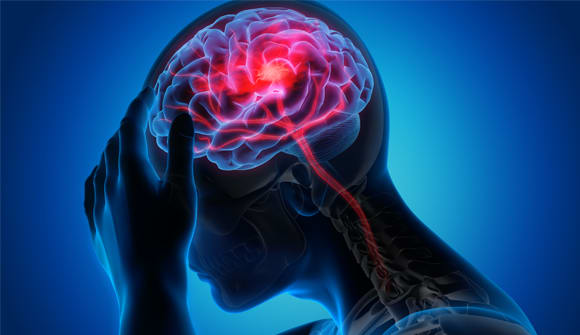'Code Stroke'
Don't dismiss symptoms.
Article Date:

When minutes matter during a stroke, timely action and access to a primary stroke center can pave the way for recovery. So why do some people dismiss symptoms, delaying life-saving care?
Members of the 24-hour stroke team at Baptist Health have spent years preparing to care for patients in the fastest and most effective ways. The time it takes them to move you from the door of the Emergency Department to the treatment that's right for you is minimal.
The stroke team wants you to know one thing: Get here. Fast.
"I've had people tell me they thought the symptoms would go away if they could just lay down for a few hours," said Wendy Camp, APRN, director of the Stroke and Tele-Stroke program at Baptist Health. A delay in treatment could end up costing precious brain function and causing disability.
5 signs of a stroke
Rather than waiting to see what happens or trying to sleep symptoms off, a better course of action is calling for emergency help. Don't attempt to drive yourself to the hospital. If you, a family member or a friend is having a stroke, Camp said your best bet is to call 911.
Symptoms may include:
Loss of balance, dizziness or nausea
Eyesight changes in one or both eyes
Facial droop on one side
Downward drift of one arm when raised
Slurred speech
A stroke is a brain attack. It requires prompt action, just like a heart attack. If a stroke is suspected, the best thing you can do is call for help immediately.
What happens at Baptist Health when you call 911?
First responders assess you and do a pre-notification call to Baptist Health's stroke team. Between 15 and 20 medical professionals are alerted that you've had a stroke and you're on your way.
Baptist Health Stroke Team members are ready to meet you at the door and take you directly to a CT scan in the Emergency Room.
The CT scan can show what areas of the brain (if any) have been affected by the stroke. It also shows what areas are in the clear and can be saved with quick intervention, including those that control speech and movement.
If the stroke is caused by the blockage of an artery, the team will determine whether you can benefit from tPA (an IV medication designed to break up the clot), a mechanical thrombectomy (a minimally invasive procedure to remove the clot), or both.
If you are within the appropriate time window for tPA, and you don't have any contraindications to the medication (reasons to not use the medication, as it would pose greater risk than benefit), tPA will be administered once the CT scan confirms there is no evidence of bleeding in the brain.
If you would benefit from a thrombectomy, the team will quickly prepare you and escort you to the procedure area, where a neuroendovascular specialist (a neurologist or neurosurgeon with special training) will perform the procedure. Many patients receive both forms of treatment.
Afterward, you will recover in the Neuro Post-Anesthesia or Neuro-Intensive Care Unit.
Educating for emergencies
Life-changing interventions allow people to resume their lives and recover fully from a stroke. Even those who don't arrive at the hospital within the optimal window for treatment are benefiting from clinical trials that expand the timeframe and enable interventions hours after the onset of symptoms.
Baptist Health's Stroke & Cerebrovascular Center has the most advanced stroke care in the region. A compassionate team from several medical disciplines is ready with the latest practices and technology to provide rapid diagnosis and effective intervention.
"Many times, we don't get the opportunity to try to help the person because they didn't get here fast enough," Camp explained. "It becomes a 'could've, would've, should've' situation. We're hopeful that by educating the public about the signs of stroke, more people will seek help for themselves or their loved ones immediately and avoid life-altering side effects."
Stroke care at Baptist Health
A stroke is a life-threatening emergency. If you or someone you know is experiencing symptoms, call 911 or go to the nearest Emergency Center immediately. When minutes matter, the experts at Baptist Neurology and Lyerly Neurosurgery provide comprehensive care and cutting-edge treatment for stroke and other conditions.



